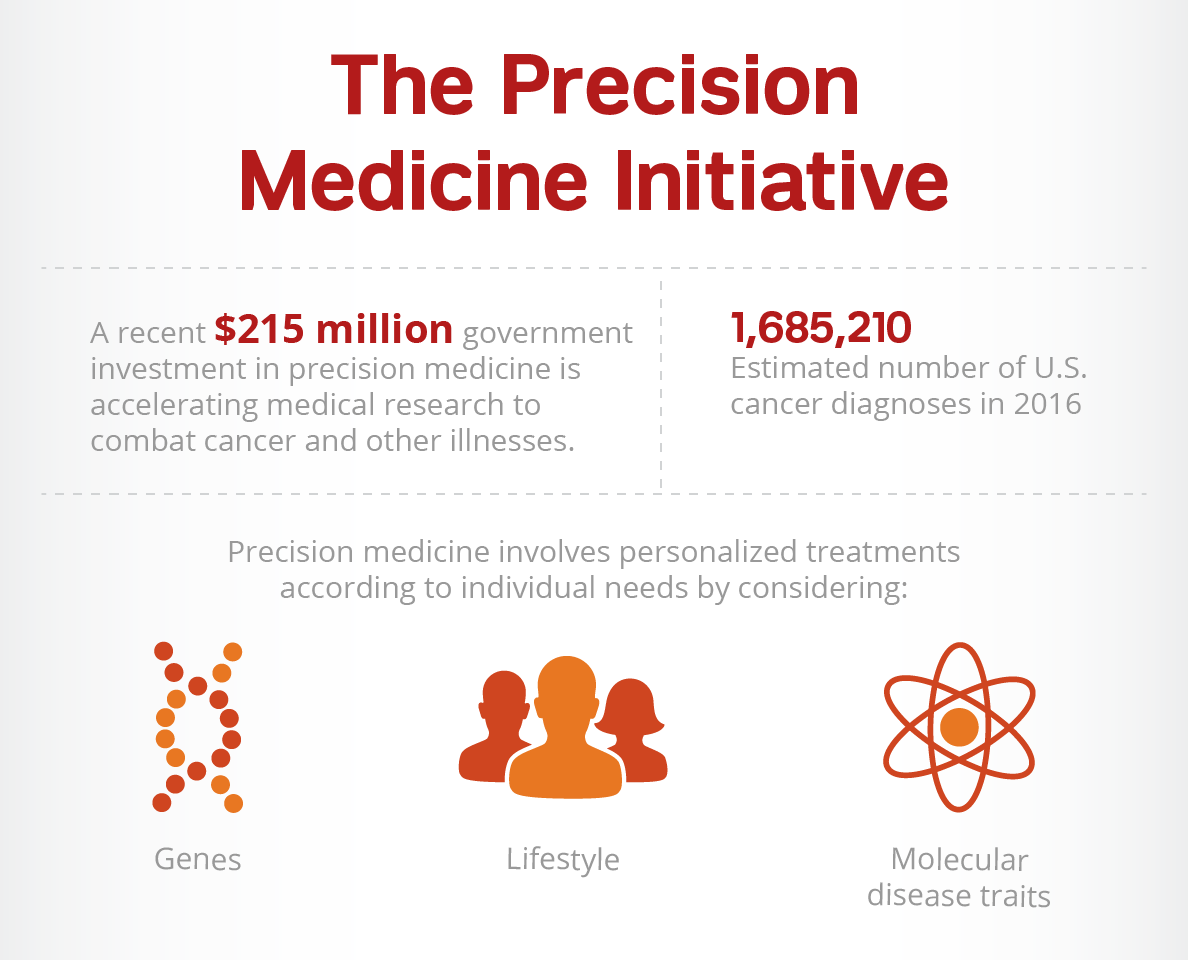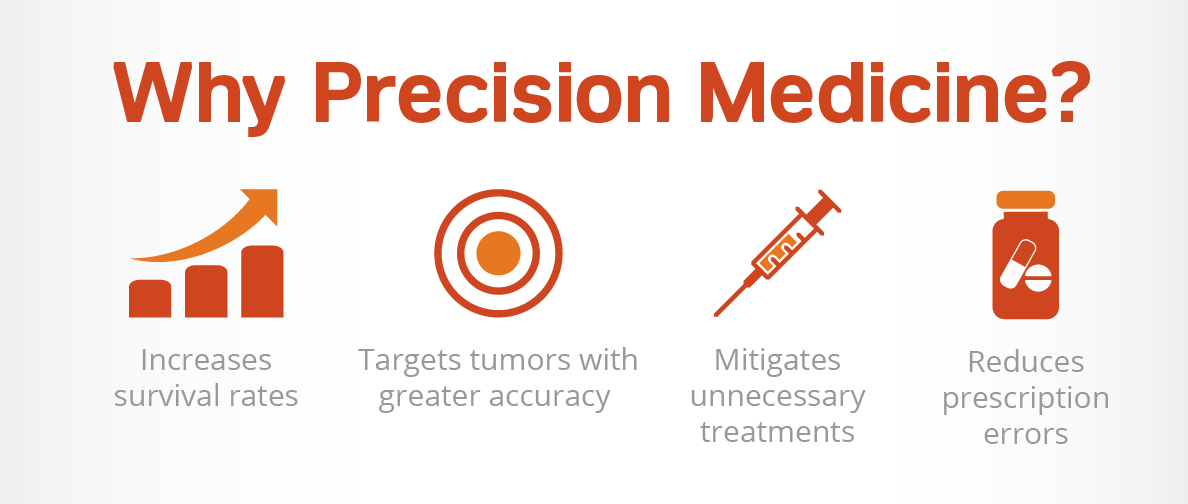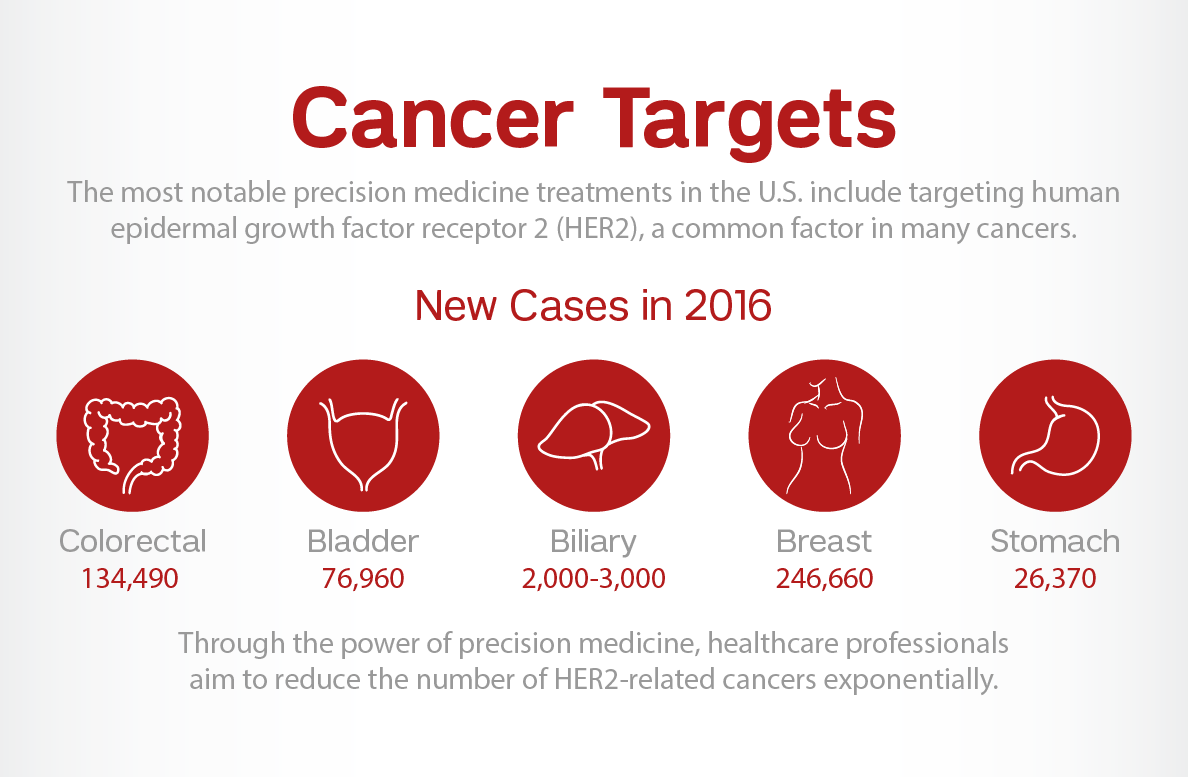Precision medicine is an innovative approach that uses a tumor’s molecular makeup, as well as a patient’s lifestyle and genetics, to help physicians choose the best therapies for their patients.
All cancers are characterized by mutations in the DNA. These mutations have the potential to drive cancer growth and can influence how a patient might respond to medication or help explain why a patient has stopped responding to treatment.

In addition to targeting tumors with greater accuracy and increasing survival rates, research suggests precision medicine could mitigate unnecessary treatments and reduce prescription errors.

More than half expect to see lower patient volumes within two years and health organizations are focusing their precision medicine efforts to help treat diseases like diabetes and cancer. The U.S. federal government has also launched the Precision Medicine Initiative, a $215 million investment to accelerate research to combat cancer and other illnesses.

Those types of cancers include colorectal, bladder, biliary, breast and stomach cancers. Researchers hope these targeted treatments can reduce the number of HER2-related cases exponentially.

To learn more about precision medicine, including how to sign up for a clinical trial, visit Weill Cornell Medicine’s Englander Institute for Precision Medicine.
To learn more about the ways we diagnose and treat cancer, visit our Hematology and Oncology page.